Peugeot 2008 vs Skoda Elroq - Differences and prices compared
Compare performance (156 HP vs 340 HP), boot space and price (24500 £ vs 29100 £ ) at a glance. Find out which car is the better choice for you – Peugeot 2008 or Skoda Elroq?
Costs and Efficiency:
When it comes to price and running costs, the biggest differences usually appear. This is often where you see which car fits your budget better in the long run.
Peugeot 2008 has a somewhat advantage in terms of price – it starts at 24500 £ , while the Skoda Elroq costs 29100 £ . That’s a price difference of around 4595 £.
In terms of energy consumption, the advantage goes to the Skoda Elroq: with 15.20 kWh per 100 km, it’s barely noticeable more efficient than the Peugeot 2008 with 15.50 kWh. That’s a difference of about 0.30 kWh.
As for electric range, the Skoda Elroq performs clearly perceptible better – achieving up to 573 km, about 167 km more than the Peugeot 2008.
Engine and Performance:
Power, torque and acceleration say a lot about how a car feels on the road. This is where you see which model delivers more driving dynamics.
When it comes to engine power, the Skoda Elroq has a convincingly edge – offering 340 HP compared to 156 HP. That’s roughly 184 HP more horsepower.
In acceleration from 0 to 100 km/h, the Skoda Elroq is significantly quicker – completing the sprint in 5.40 s, while the Peugeot 2008 takes 8.30 s. That’s about 2.90 s faster.
In terms of top speed, the Peugeot 2008 performs somewhat better – reaching 206 km/h, while the Skoda Elroq tops out at 180 km/h. The difference is around 26 km/h.
There’s also a difference in torque: Skoda Elroq pulls decisively stronger with 679 Nm compared to 270 Nm. That’s about 409 Nm difference.
Space and Everyday Use:
Whether family car or daily driver – which one offers more room, flexibility and comfort?
Both vehicles offer seating for 5 people.
In curb weight, Peugeot 2008 is clearly lighter – 1263 kg compared to 1953 kg. The difference is around 690 kg.
In terms of boot space, the Skoda Elroq offers barely noticeable more room – 470 L compared to 434 L. That’s a difference of about 36 L.
In maximum load capacity, the Skoda Elroq performs hardly perceptible better – up to 1580 L, which is about 113 L more than the Peugeot 2008.
When it comes to payload, Skoda Elroq a bit takes the win – 531 kg compared to 447 kg. That’s a difference of about 84 kg.
Who wins the race in the data check?
The Skoda Elroq holds a decisive overall lead in the objective data comparison.
This result only shows which model scores more points on paper – not which of the two cars feels right for you.
Costs and Consumption
View detailed analysis
Engine and Performance
View detailed analysis
Dimensions and Body
View detailed analysis
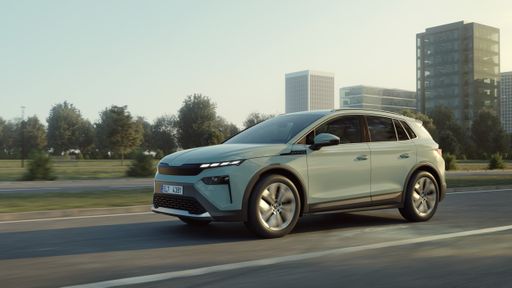
Skoda Elroq
Peugeot 2008
The Peugeot 2008 is a stylish, city-friendly crossover that packs big character into a compact package, turning mundane errands into a mildly entertaining drive. Its clever interior layout, polished looks and confident ride make it a smart choice for buyers who want practical daily sense with a touch of flair.
details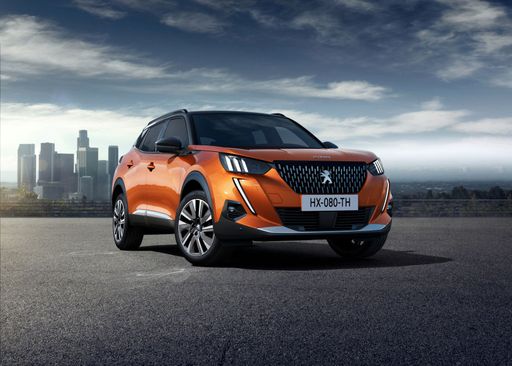
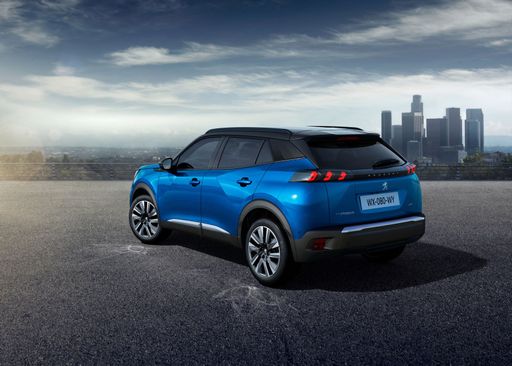
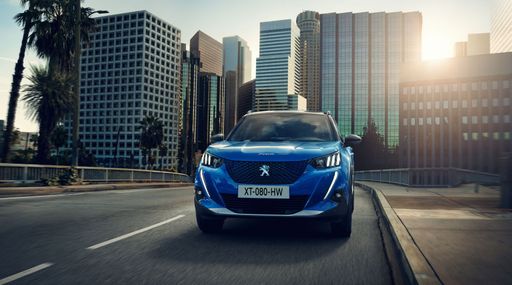
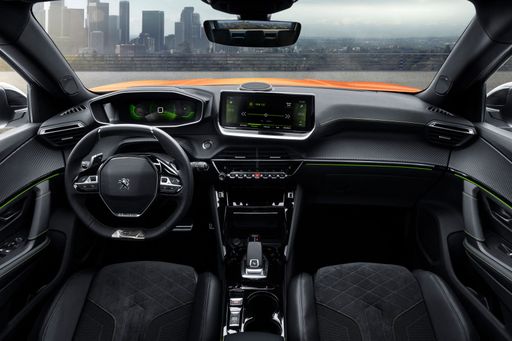
Skoda Elroq
The Skoda Elroq is a cleverly packaged family SUV that mixes roomy practicality with sharp, modern looks, making it an easy pick for buyers who prefer common sense over flash. On the road it's composed and user-friendly, with thoughtful interior details that turn everyday driving into something pleasantly efficient — a sensible companion with a wink.
details
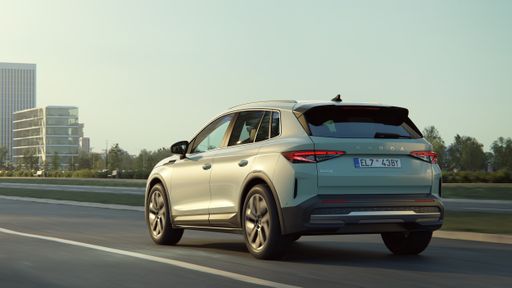
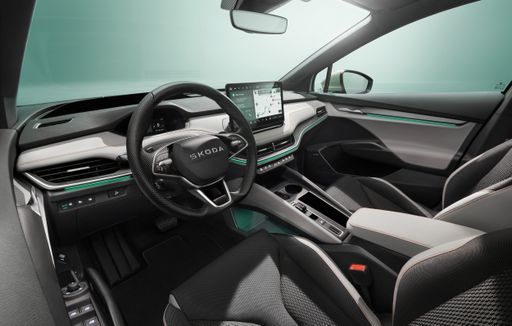
Costs and Consumption |
|
|---|---|
|
Price
24500 - 40300 £
|
Price
29100 - 45500 £
|
|
Consumption L/100km
4.9 - 5.7 L
|
Consumption L/100km
-
|
|
Consumption kWh/100km
15.50 kWh
|
Consumption kWh/100km
15.2 - 16.5 kWh
|
|
Electric Range
406 km
|
Electric Range
377 - 573 km
|
|
Battery Capacity
51 kWh
|
Battery Capacity
52 - 79 kWh
|
|
co2
0 - 129 g/km
|
co2
0 g/km
|
|
Fuel tank capacity
44 L
|
Fuel tank capacity
-
|
Dimensions and Body |
|
|---|---|
|
Body Type
SUV
|
Body Type
SUV
|
|
Seats
5
|
Seats
5
|
|
Doors
5
|
Doors
5
|
|
Curb weight
1263 - 1623 kg
|
Curb weight
1953 - 2268 kg
|
|
Trunk capacity
434 L
|
Trunk capacity
470 L
|
|
Length
4304 mm
|
Length
4488 mm
|
|
Width
1770 mm
|
Width
1884 mm
|
|
Height
1523 mm
|
Height
1608 - 1625 mm
|
|
Max trunk capacity
1467 L
|
Max trunk capacity
1580 L
|
|
Payload
407 - 447 kg
|
Payload
470 - 531 kg
|
Engine and Performance |
|
|---|---|
|
Engine Type
Electric, Petrol MHEV, Petrol
|
Engine Type
Electric
|
|
Transmission
Automatic, Manuel
|
Transmission
Automatic
|
|
Transmission Detail
Reduction Gearbox, Dual-Clutch Automatic, Manual Gearbox
|
Transmission Detail
Reduction Gearbox
|
|
Drive Type
Front-Wheel Drive
|
Drive Type
Rear-Wheel Drive, All-Wheel Drive
|
|
Power HP
101 - 156 HP
|
Power HP
170 - 340 HP
|
|
Acceleration 0-100km/h
8.3 - 10.9 s
|
Acceleration 0-100km/h
5.4 - 9 s
|
|
Max Speed
150 - 206 km/h
|
Max Speed
160 - 180 km/h
|
|
Torque
205 - 270 Nm
|
Torque
310 - 679 Nm
|
|
Number of Cylinders
3
|
Number of Cylinders
-
|
|
Power kW
74 - 115 kW
|
Power kW
125 - 250 kW
|
|
Engine capacity
1199 cm3
|
Engine capacity
-
|
General |
|
|---|---|
|
Model Year
2023 - 2025
|
Model Year
2025
|
|
CO2 Efficiency Class
A, C, D
|
CO2 Efficiency Class
A
|
|
Brand
Peugeot
|
Brand
Skoda
|
Is the Peugeot 2008 offered with different drivetrains?
The Peugeot 2008 is available as Front-Wheel Drive.




